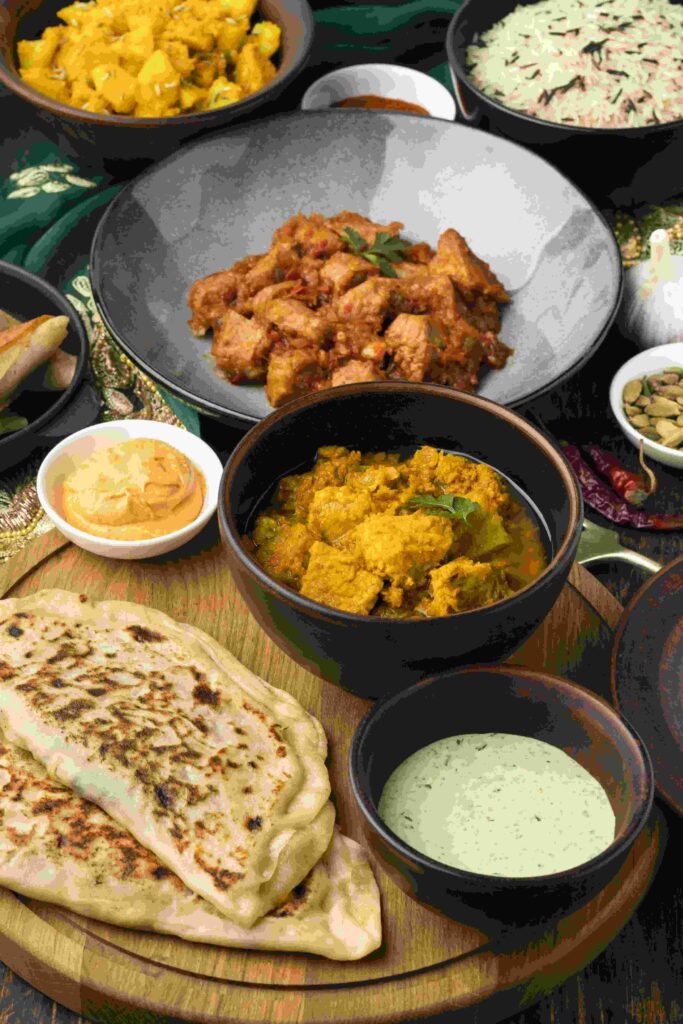FSSAI-Registration (FOOD License)

FSSAI Registration Process – Documents Required, Benefits, Penalty
FSSAI registration is one of the most important registration that is required to be obtained by every person who wishes to open a restaurant, bakery, hotel or food stall in India. The persons involved in the food business, such as manufacturing, transportation, distribution and storage of food articles/products are also mandatorily required to have a FSSAI registration to carry on their food business.
FSSAI stands for Food Safety and Standards Authority of India. It is an organization that monitors and governs the entire food business in India. It is an autonomous body that is established under the Ministry of Health and Family Welfare, Government of India.
The FSSAI has been established under the Food Safety and Standards Act, 2006 (FSS Act) which is a consolidating statute related to food safety and regulation in India. It ensures the food products undergo quality checks thereby curtailing the food adulteration and sale of sub-standard products. It is responsible for the registering and licensing of the Food Business Operators (FBO) in India and it lays down the rules and regulations for running the food business in India.
FSSAI Registration
Every person (natural or artificial) involved in food business, such as manufacturing, processing, storage, distribution and sale of food products must compulsorily obtain FSSAI Registration or License.
FSSAI Registration is different from the FSSAI License depending on the size and nature of the business. FBOs should obtain the necessary registration or license depending on the size of their businesses.
FSSAI Registration is a 14-digit registration or a license number that is printed on all the food packages. The 14-digit registration number gives details about the assembling state and producer’s permit. This registration procedure is aimed to create more accountability on the FBO to maintain the quality of the food products. The licensing and registration procedure and requirements are regulated by Food Safety & Standards (Licensing and Registration of Food Business) Regulations, 2011.


Food Business Operators (FBOs) Who Require FSSAI Registration
The FBOs carrying on the following kinds of business are mandatorily required to obtain an FSSAI Registration/License:
- Petty retailers and retail shops such as Retail Shop, Snacks shop, Confectionery or Bakery Shop, etc.
- Temporary stalls or fixed stall or food premise involved in the preparation, distribution, storage and sale of food products such as Gol Gappa stall, chat stall, fruits/vegetable vendors, Tea Stall, snacks stall, Bread pakoda stall, Samosa stall, Chinese food stall, South Indian food stall, sweet stall, juice shops, etc.
- Hawkers who sell packaged or freshly prepared food by travelling (usually on foot or movable carts) from one location to another.
- Dairy Units including Milk Chilling Units, Petty Milkman and Milk Vendors.
- Vegetable Oil Processing Units.
- Slaughtering houses such as meat shops, mutton shops, chicken shops, lamb meat, etc.
- Meat Processing and Fish Processing units.
- All Food Manufacturing/ Processing units that include Repacking of food.
- Proprietary food and Novel food.
- Cold/refrigerated storage facility.
- Transporter of food products having a number of specialised vehicles like insulated refrigerated van/wagon, milk tankers, food wagons, food trucks, etc.
- Wholesaler, supplier, distributor and marketer of food products.
- Hotels, Restaurants and Bars.
- Canteens and Cafeteria including mid-day meal canteens.
- Food Vending Agencies and Caterer.
- Dhaba, PG providing food, Banquet halls with food catering arrangements, Home Based Canteens and Food stalls in fairs or religious institutions.
- Importers and Exporters of food items including food ingredients.
- E-Commerce food suppliers including cloud kitchens.
The type of FSSAI license/registration required by each of the kinds of the above-mentioned businesses depends on their eligibility criteria. The eligibility criteria for each kind of business and type of license/registration is provided on the FSSAI website.
Types of FSSAI Registration
FSSAI registration is based on the business types, turnover and capacity of production. Depending upon the installed capacity and turnover, FBOs are eligible for license such as basic license, central license, and state license.

- FSSAI Basic Registration – FBOs having a turnover of less than Rs.12 lakh p.a must obtain FSSAI basic registration. The FSSAI registration form that the applicant has to fill to obtain FSSAI basic registration is Form A.
- FSSAI State License – FBOs having a turnover of more than Rs.12 lakh p.a and less than Rs.20 crore p.a must obtain the FSSAI state license. The FSSAI registration form that the applicant has to fill to obtain an FSSAI state license is Form B.
- FSSAI Central License – FBOs having a turnover of more than Rs.20 crore p.a must obtain the FSSAI central license. The FSSAI registration form that the applicant has to fill to obtain FSSAI central license is Form B.

Procedure for Obtaining FSSAI Registration Online
- FBOs can obtain FSSAI registration online by filling and submitting the FSSAI registration form, i.e. Form A (application for Registration) or Form B (application for State and Central License) on the FoSCoS portal. The FBOs can also register offline by submitting Form A or Form B to the Food and Safety Department.
- The FSSAI registration form must be accompanied by the required documents. The documents must be uploaded online on the FoSCos portal at the time of filling the application or submitted to the Food and Safety Department along with the application physically.
- The FSSAI registration form can be accepted or it may be rejected by the Department within 7 days from the date of receipt of an application either physically or online through the FoSCoS portal. If the application is rejected it has to be intimated to the applicant in writing.
- The Department will scrutinise the documents submitted.
- The Department may conduct an inspection of the food premises, before granting the FSSAI registration certificate, if necessary.
- If the Department is satisfied that the FBO meets all the required criteria, then it will grant an FSSAI registration certificate with the registration number and the photo of the applicant email ID. The applicant can also download the FSSAI registration certificate by logging into the FoSCoS portal.
- FBO should prominently display the certificate of FSSAI registration at the place of business during business hours.
FSSAI Registration Eligibility
FSSAI Registration is a basic license and it is required for all the FBOs involved in the small-scale food business. This category covers the following businesses:
- Any FBO with an annual turnover of not more than Rs. 12 lakh.
- Petty retailer dealing in food products.
- Any person who manufactures or sells any food article by himself.
- Food sale is done by the temporary stall holder.
- Any individual who distributes food in any religious or social gathering except a caterer.
- Small-scale or cottage industries dealing in the food business and the following:
| Sl.No | Business | Capacity |
|---|---|---|
| 1 | Food production capacity (other than milk and meat) | Up to 100 kg/ltr per day |
| 2 | Procurement, handling and collection of milk | Up to 500 ltr per day |
| 3 | Slaughtering capacity | 2 large animals or 10 small animals or 50 poultry birds per day or less |
FSSAI License Eligibility
For all other FBOs apart from small-scale businesses, the FSSAI license has to be obtained. FSSAI License can be classified into two categories i.e. State FSSAI License and Central FSSAI License based on the size of the business whether it is a medium scale or large scale business.
Generally, FBOs who are large manufacturers, importers, exporters dealing in large-scale food businesses need to obtain FSSAI registration from the central government and FBO with small to medium-sized manufacturing units, transporters, marketers, traders, etc., need to take FSSAI registration from the state government. To apply for State License, the FBO must have a turnover between Rs 12 lakh to Rs 20 crore.
Other conditions include manufacturing units having a capacity of 2MT per day, dairy units handling business up to 5000 litres per day. 3-star hotels and above, repackers, relabelling units, clubs, canteens all catering businesses irrespective of their turnover need to apply for the license. The tenure of the license issued is a maximum of 5 years and a minimum of 1 year.
To apply for a Central License, the FBO must have a turnover exceeding Rs. 20 crores and needs to have operations in two or more states. All importers and exporters need to apply for this license. The maximum tenure is 5 years and the minimum is 1 year.
Documents Required For Obtaining the FSSAI Registration/License
The following documents are required to obtain FSSAI basic registration, FSSAI state license and FSSAI central license:
- Photo identity proof of the food business operators.
- Business constitution certificate, i.e. partnership deed, certificate of incorporation, shop and establishment licence or other business registration certificate.
- Proof of possession of business premises, i.e. rental agreement, NOC from the owner of the rented premises, utility bills etc.
- Food safety management system plan.
- List of food products manufactured or processed.
- Bank account information.
- Supporting documents (if required) like NOC by Municipality or Panchayat, Health NOC, copy of License from the manufacturer, etc.
Apart from the above-mentioned general documents, certain specific documents are required for obtaining the FSSAI state license and FSSAI central license. The specific documents required to obtain the FSSAI state license are:
- Form B duly completed and signed
- Plan of the processing unit showing the dimensions and operation-wise area allocation
- List of Directors/ Partners/ Proprietor with address, contact details, and photo ID
- Name and list of equipment and machinery used with the number and installed capacity
- Authority letter from manufacturer nominated a responsible person name and address
- Analysis report of water to be used in the process to confirm the portability
- Copy of certificate obtained under Coop Act 1861/Multi-State Coop Act 2002
Apart from the general license, the following specific documents are required to obtain FSSAI central license:
- Form B duly completed and signed
- Plan of the processing unit showing the dimensions and operation-wise area allocation
- List of Directors/ Partners/ Proprietor with address, contact details, and photo ID
- Name and list of equipment and machinery used with the number and installed capacity
- Authority letter from manufacturer nominated a responsible person name and address
- Analysis report of water to be used in the process to confirm the portability
- Source of raw material for milk, meat etc
- Recall plan wherever applicable
- Ministry of Commerce Certificate for 100% EOU
- NOC/PA document issued by FSSAI
- IE code document issued by DGFT
- Form IX
- Certificate from Ministry of Tourism
- Supporting document for proof of turnover and transportation
- Declaration form
FSSAI Registration Status
An applicant is informed by SMS/Email alert at many stages of application processing by FSSAI. The applicant can also check the FSSAI registration status by entering the application reference number issued after submitting the application to FSSAI on the ‘Track Application Status’ tab on the FoSCoS website. Click here for detailed steps on tracking FSSAI application status.
The different stages of the FSSAI registration status can be viewed by tracking the application status. When the FSSAI registration status is displayed as ‘Application Reverted’, the FSSAI authorities have reverted back the application for necessary modification or clarification. The applicant needs to submit the response within 30 days from the reverted date to avoid the risk of application rejection.
The FSSAI registration status will be displayed as ‘Registration Certificate Issued’ when the FSSAI authorities issue the FSSAI registration certificate. The applicants can download the certificate by logging into the FoSCoS website.
FSSAI License for Cloud Kitchen
One of the most popular food business ideas is cloud kitchen. A cloud kitchen is also known as a dark kitchen or ghost kitchen. It is a commercial kitchen where food is prepared only for delivery or takeout. It is fundamentally a restaurant that receives food orders through an online platform and delivers food at the customer’s place. It does not have physical premises where it serves food and they have a base kitchen from where the food is conveyed to the clients’ doorstep.
FSSAI regulates the food industry in India. It mandates the registration of all Food Business Operators (FBOs) including the cloud kitchen. Thus, the FSSAI license is mandatory for cloud kitchens. Depending on the annual turnover, cloud kitchens can obtain the FSSAI Basic Registration, FSSAI State License or the FSSAI Central License.
The cloud kitchens need to get FSSAI Basic Registration when their annual turnover is less than Rs 12 lakh by applying Form A. They need to get FSSAI State License when their annual turnover is more than Rs 12 lakh but less than Rs 20 crore by applying Form B. They need to obtain FSSAI Central License when their annual turnover is more than Rs 20 crore by applying Form B.
Cloud kitchens can apply for FSSAI Licenses/Registration through the FoSCoS portal. They need to select the type of food business, annual turnover, fill out either Form A or Form B, upload documents and make an online payment to submit the license/registration application.
Upon submission of the license/registration application, the respective department will verify the application and scrutinise the documents submitted. When the department is satisfied that the cloud kitchen meets all the required criteria, it will grant an FSSAI registration certificate with the registration number to the applicant’s email ID.
Benefits of Procuring FSSAI Food License
Obtaining a license can provide the food business with legal benefits, build goodwill, ensure food safety, create consumer awareness, and assist in business expansion. Also, it helps regulate, manufacture, storage, distribution and sale of import food. It is easy to obtain funds from investors when an FBO has FSSAI registration.
The FSSAI logo on the food products ensures the quality of food to the customers. The FSSAI registration number displayed on the food premises indicate that the premises comply with the hygiene and quality standards.
Consequences of Non-Compliance
Any registered or licensed person under the FSSAI has to adhere to the rules and regulation under the FSS Act, 2006. Food safety officer generally conducts the inspection of the food business operator’s facility and identifies the level of compliance with the regulation using a checklist. Based on the compliance level, the food safety officer marks it as:
- Compliance (C)
- Non-compliance (NC)
- Partial compliance (PC)
- Not applicable/Not observed (NA)
Based on the above, the food safety officer might issue an improvement notice where ever required per Section 32 of the FSS Act, 2006. If the business operator fails to comply with the improvement notice, the officer after giving the licensee an opportunity to show cause may cancel his license. Any food business operator aggrieved by an improvement notice can appeal to the State Commissioner of Food Safety. The decision thereon can be challenged through appealing to the Food Safety Appellate Tribunal/High Court.
Penalty for Non- Compliance
Listed is the penalty for various type of non-compliance:
| Sl.No | Particulars | Fine |
|---|---|---|
| 1 | Food quality not in compliance with act | 2 Lakh Petty manufacturer � 25,000/- |
| 2 | Sub-standard food | 5 Lakh |
| 3 | Misbranded Food | 3 Lakh |
| 4 | Misleading advertisement or false description | 10 Lakh |
| 5 | Extraneous matter in food | 1 Lakh |
| 6 | Failure to comply with Food safety officer direction | 2 Lakh |
| 7 | Unhygienic processing or manufacture | 1 Lakh |
Renewal of FSSAI License
The FSSAI license is essential to commence the food business, similarly, it is imperative to renew the license. The license is issued for a validity of 1 year or 5 years, so the business must apply for renewal 30 days prior to the expiry of the current license.
